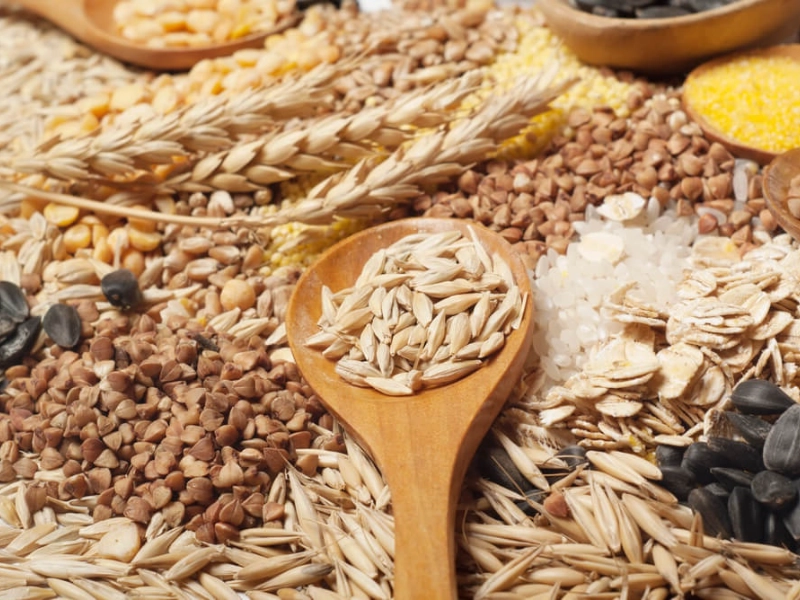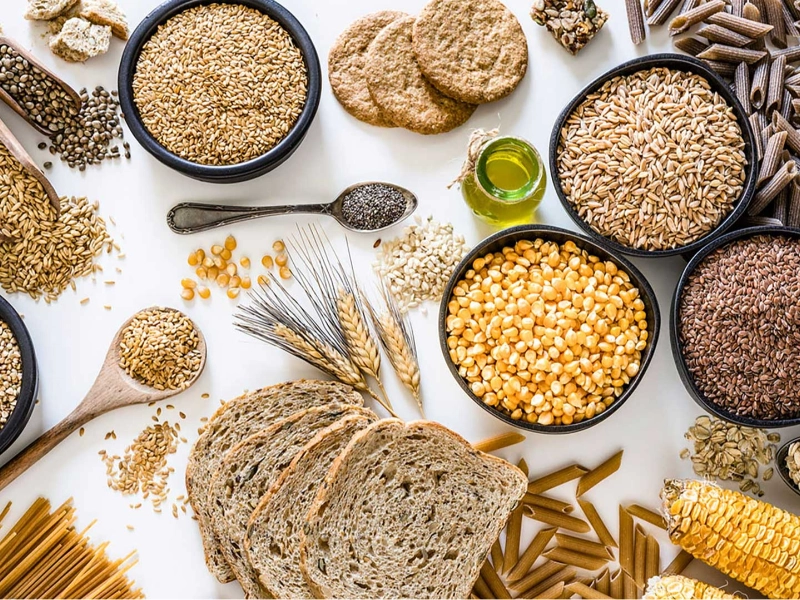Grains and Metabolic Health: Supporting Your Body's Processes
1. Understanding Metabolic Health

2. The Nutritional Value of Grains
 Rich in vital minerals, vitamins, carbs, and fibre, grains provide Since whole grains maintain the bran, germ, and endosperm, they in particular offer more nutrients than refined grains. This makes them a great supplement to a diet in balance. Dietary fibre abound in whole grains including brown rice, quinoa, oats, and whole wheat; this is vital for digestive health and helps control blood sugar levels. Whole grains will help you support your metabolic activities and improve your nutrient consumption in your meals.
Rich in vital minerals, vitamins, carbs, and fibre, grains provide Since whole grains maintain the bran, germ, and endosperm, they in particular offer more nutrients than refined grains. This makes them a great supplement to a diet in balance. Dietary fibre abound in whole grains including brown rice, quinoa, oats, and whole wheat; this is vital for digestive health and helps control blood sugar levels. Whole grains will help you support your metabolic activities and improve your nutrient consumption in your meals.
3. The Role of Fiber in Metabolic Health
 One of the main elements of grains that greatly affects metabolic condition is dietary fibre. It prevents constipation and encourages frequent bowel motions, therefore helping digestion. More crucially, by slowing down glucose absorption into the bloodstream, fibre helps control blood sugar levels. This can help to reduce blood sugar increases, therefore lowering the risk of type 2 diabetes and insulin resistance. Fibre also adds to sensations of fullness, which can help control weight. Maintaining steady metabolic health depends on including grains high in fibres in your diet.
One of the main elements of grains that greatly affects metabolic condition is dietary fibre. It prevents constipation and encourages frequent bowel motions, therefore helping digestion. More crucially, by slowing down glucose absorption into the bloodstream, fibre helps control blood sugar levels. This can help to reduce blood sugar increases, therefore lowering the risk of type 2 diabetes and insulin resistance. Fibre also adds to sensations of fullness, which can help control weight. Maintaining steady metabolic health depends on including grains high in fibres in your diet.
4. Grains and Blood Sugar Control
 The kind of grains eaten can directly affect blood sugar regulation. Because their glycemic index is lower than that of refined grains, whole grains produce a slower and more steady rise in blood sugar levels. Those with diabetes or insulin sensitivity particularly need this. diets like quinoa, barley, and oats can help stabilise blood sugar levels and give steady energy without the crashes connected with high-glycemic diets. One easy yet powerful way to improve metabolic health is to choose whole grains rather than refined products.
The kind of grains eaten can directly affect blood sugar regulation. Because their glycemic index is lower than that of refined grains, whole grains produce a slower and more steady rise in blood sugar levels. Those with diabetes or insulin sensitivity particularly need this. diets like quinoa, barley, and oats can help stabilise blood sugar levels and give steady energy without the crashes connected with high-glycemic diets. One easy yet powerful way to improve metabolic health is to choose whole grains rather than refined products.
5. The Impact of Grains on Heart Health
Metabolic health is intimately related to heart health, hence whole grains can be rather important in supporting cardiovascular wellbeing. Whole grains abound in minerals, vitamins, and antioxidants that support heart function. They can lower blood pressure, aid to lower cholesterol, and hence lessen inflammation. Whole grains' fibre content also helps heart health by enhancing lipid profiles and hence fostering good blood artery function. Including whole grains in your diet can thus be a proactive measure to preserve metabolic and cardiovascular condition.
6. Grains and Weight Management
A key component of metabolic health is keeping a good weight, hence grains can help in this respect as well. Because they contain so much fibre, whole grains are nutrient-dense and can help regulate hunger. Included in a balanced diet, they can help one feel full and cut total calorie intake. Whole grains' slow-release carbs also give consistent energy, which helps one avoid unhealthy snacking more easily. Emphasising whole grains helps people control their weight and assist in metabolic processes.
7. The Importance of Variety in Grain Choices
One must eat a range of whole grains if one is to really profit from the metabolic health benefits of grains. Various grains provide various health advantages and nutrient profiles. Quinoa, for instance, is a complete protein while brown rice supplies vital B vitamins. Including several grains in your diet not only improves the nutritional value but also makes meals interesting and pleasant. While meeting your body's metabolic demands, varying grains might let you find new flavours and textures.
8. Summary of Grains' Role in Metabolic Health
All things considered, grains—especially when ingested whole—have great importance in maintaining metabolic health by their nutritional worth. They offer dietary fibre, vital minerals, and helpful chemicals that control blood sugar levels, support heart function, and aid in weight loss. Including different whole grains in your diet will improve your metabolic functions and support general health and well-being. One easy yet powerful strategy to help your body's metabolic health is to choose grains carefully.








